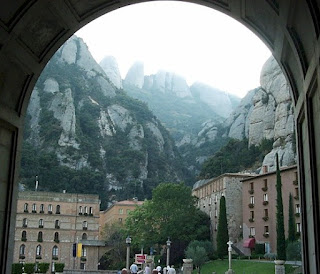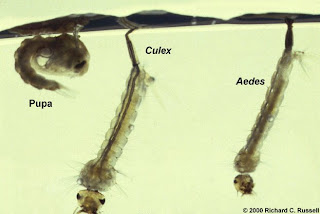
And before anyone accuses me of losing my national identity by not supporting Hamilton, am I the only one to find the whole concept of Formula 1 racing obscene at worst and boringly irrelevant at best?
This ‘sport’ is the best example we have of the ‘bread and circuses’ approach to public entertainment. At a time of national and international crisis the unbelievable amounts of money expended on car and driver seem, at least, insensitive. It was hardly a surprise at a time when we are all supposed to be concerned about our carbon footprints that the gratuitous expenditure of energy that is a grand prix race was held at night time so
 ensuring an even greater expenditure of pointless energy!
ensuring an even greater expenditure of pointless energy!The whole concept of this form of motor racing reeks of conspicuous expenditure: the mind bendingly large sums spent on the development and building of the cars to the equally eye wateringly large amounts spent on ‘entertainment’ for the punters.
It is also a truly inhuman sport. The human element has been progressively encased in the motor car until the only part of the driver readily visible is the helmet with its visor looking like a single eye: man and machine truly at one. As the corporate sponsors sip their Champagne they are able to look benignly at the little insects scurrying their noisy way round and round the track and congratulate themselves such an insanely energy wasting event which still has public support.
Well, not mine!
I am convinced in years to come people will look back on this intensely boring inhumanly mechanical display of wastefulness and display the same shocked approach as we would now reserve for bull baiting, cock fighting and voting for the Conservative Party.
I suppose the thing which sticks in my craw more than anything, as a lover of the bubbly stuff, is what the winners of this farrago of wastefulness do when they have been given their trophies. I regard the waste of even a cheap Cava as little worse than sacrilege therefore the wholesale dumping of quality Champagne on mere racing drivers smacks of the worst excesses of disestablishmentarianism - and we all know what that led to!

My jaundiced attitude towards this event may, in part, be ascribed to the fact that I have spent the greater part of the day ensconced in my bed grumpily trying to get rid of the cough and cold which has assailed me.
The Pathetic Fallacy continues with the weather mirroring my lack of comfort but producing, for the Mediterranean, quite spectacular waves with the wind whipping back the spray in the best traditions of the picturesque.
Alas! I could only gaze out of the window and look rather than venture out and try my continuing best to photograph some of the beauty which is a daily occurrence looking at the every changing sea. The evening sky was astonishing with a band of bright orange looking as though someone had painted it in a most unconvincing manner – but to stunning effect.
I have just listened (thanks to the wonder of my internet radio) to a programme on Radio 4 called ‘Beanz Meanz Rimez’ – a discussion of the use of poetry in advertising.
 It was almost ‘perfect’ Radio 4 fare exactly attuned to their target audience. By way of illustrating the sort of poetry used they cited various slogans, “some going back fifty years” and I knew them all!
It was almost ‘perfect’ Radio 4 fare exactly attuned to their target audience. By way of illustrating the sort of poetry used they cited various slogans, “some going back fifty years” and I knew them all!Many of those slogans have been resting quietly in my deep memory for many years. When was the last time that I heard, “This is luxury you can afford with Cyril Lord” or “You’ll wonder where the yellow went when you brush your teeth with Pepsodent” and heard the music behind them? Spain (and I suspect the rest of the world) has little of offer by way of competition on a daily basis with the quality of product that Radio 4 turns out. The sad thing is that most of the population of the UK do not realise what a treasure they have lurking in the radio waves around them and rarely tune in. A real loss.
My internet radio should allow me easy access to the BBC but it is a sensitive little machine and dislikes being moved from place to place. There are also areas of sulkiness where the radio refuses to work. It has a radio link with the internet and you would suppose that wherever the laptops work then the radio will work too, but this is sadly not the case and it has a quirky coquettish refusal rate which is infuriating, especially when you are just being offered a typically quixotic piece of essential information much beloved by a typical Radio 4 listener.
In spite of self pitying illness, I am not so infirm that I am unable to claim my share of the 'panellets' which are customary for All Saints Day. These are traditional sweets which are composed of marzipan and various other additions to get the taste buds tingling. One of the most delicious is a ball of marzipan covered with glazed pine nuts.
 They come in a variety of shapes and flavours and for me they actually look better than they taste.
They come in a variety of shapes and flavours and for me they actually look better than they taste.
This is another one of the traditions of Catalonia which is at risk because of the progressive Americanization of the world. The vulgarity of ‘trick or treat’ has even penetrated Catalonia much to the disgust of traditionalists who regard such foreign imports as diluting the culture of an already much threatened region.
Talking of culture I have started re-reading ‘Jane Eyre’ – a by product of having my Sony e book reader filled with classic (out of copyright) novels and short stories. I merely wanted to look again at the opening as the weather outside reminded me of the conditions that prevented Jane from taking her walk, but a few paragraphs and I was hooked again.
Jane’s exchanges with her aunt are among my favourite passages in literature. Who is not on her side as she speaks her mind and the only response that Mrs Reed can give is, “What more have you to say?” in a “tone in which a person might address an opponent of adult age than such as is ordinarily used to a child.”
At that point Jane was not a child who needed more encouragement and thrill that a young reader gets from the defiance of her continued condemnation of her aunt is only matched by the adult reader who can perhaps understand her frustration more closely.

“I am glad you are no relation of mine: I will never call you aunt again as long as I live. I will ever come to see you when I am grown up; and if any one asks me how liked you, and how you treated me, I will say the very thought of you makes me sick and that you treated me with miserable cruelty.”
There is not even an exclamation mark at the end of that statement because, as Jane herself says, “it is the truth.” That at least is in italics and is to be a strength and a cross for Jane for the rest of her life.
It is wonderful stuff and its complexity is, paradoxically, one of its great strengths. What some modern readers find prolix is nothing of the sort; Bronte only uses the words she needs.
Like an early Giles cartoon there is always something new to be found in the books one loves.
Including the ones that one has forgotten!
The truly great thing about loving reading is that your drug is inexhaustible and unlike the other more destructive forms of addition you can reuse your ‘drug’ time and time again – and the purest form of drug does not suffer from that economic concept of ‘eventually diminishing returns’ but almost renews itself with each use transforming itself in accordance with your life experience.
A true delight!





























 actually lived until 1939? And that the reason he died was that he was viciously interrogated by the Gestapo after which he developed pneumonia and died in a few days?
actually lived until 1939? And that the reason he died was that he was viciously interrogated by the Gestapo after which he developed pneumonia and died in a few days?















